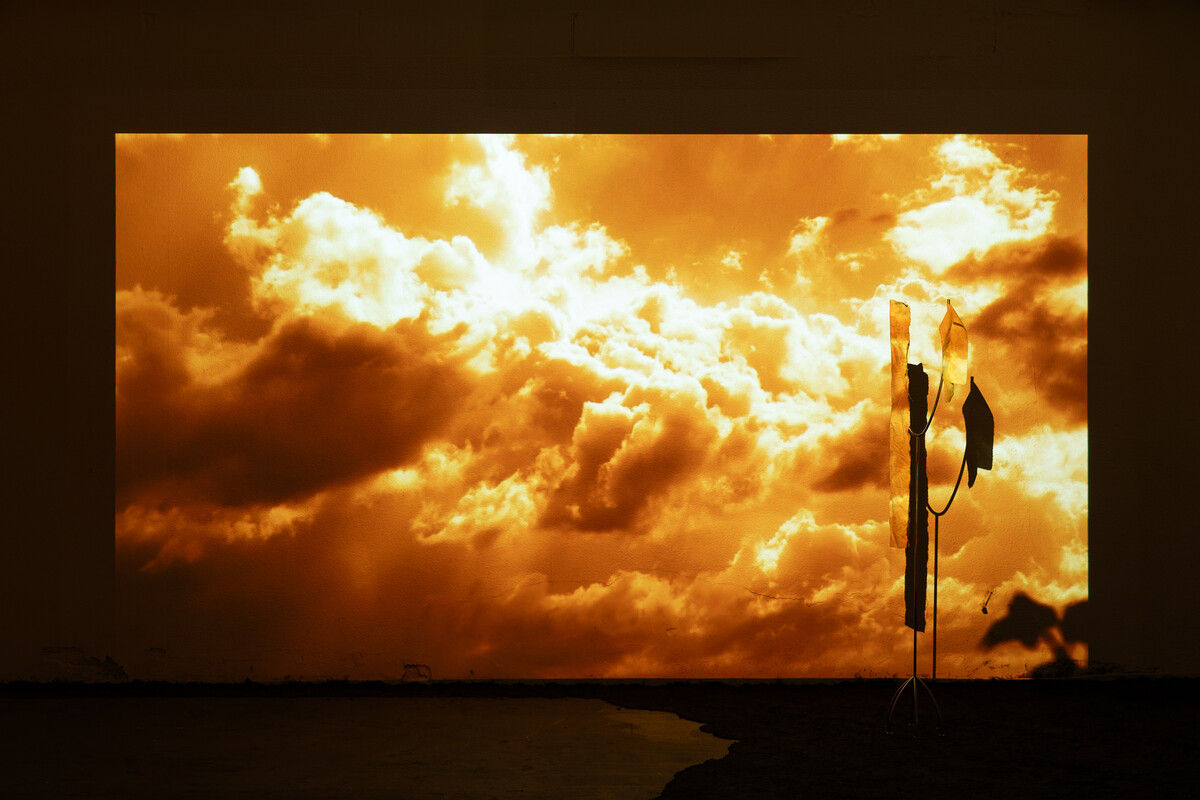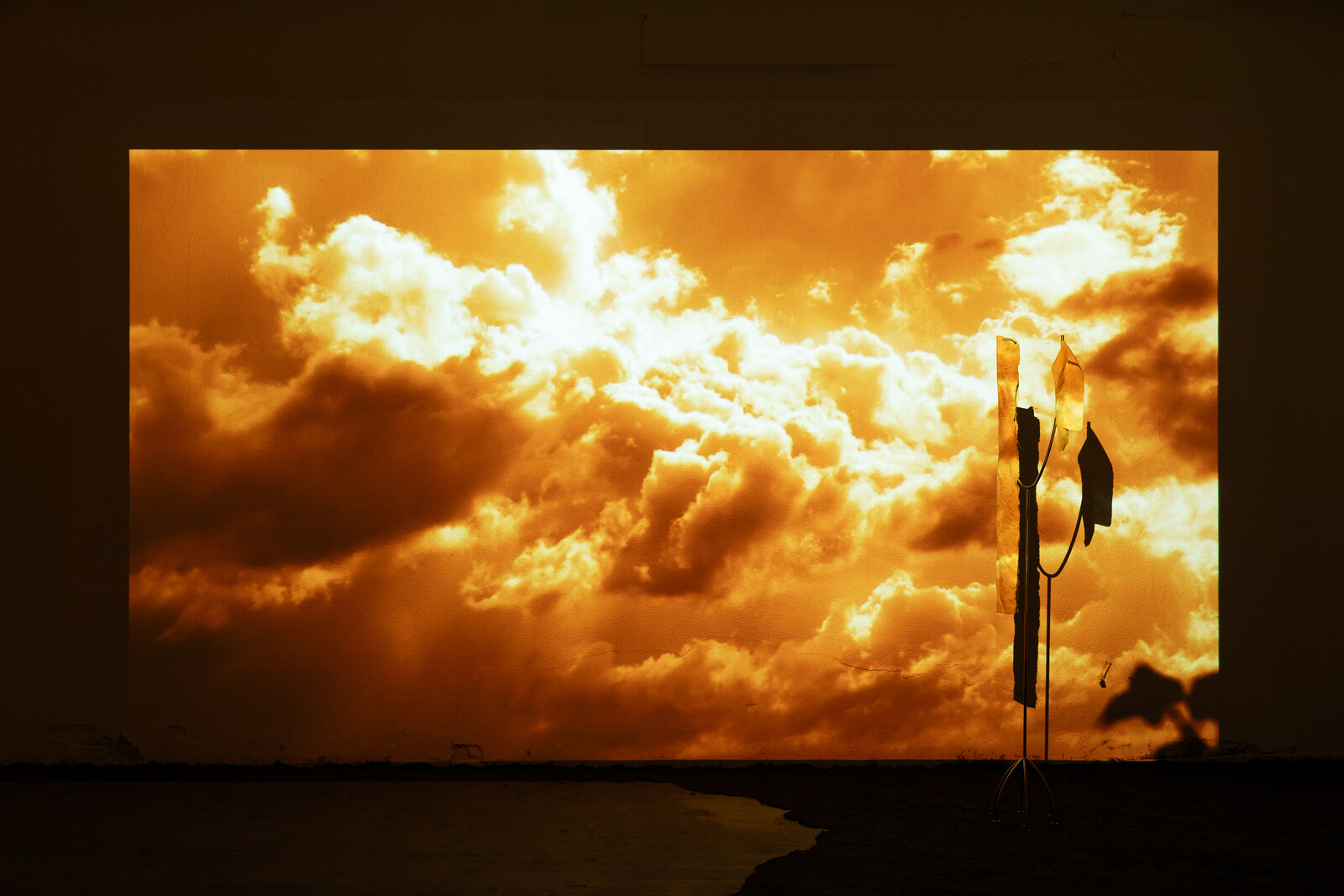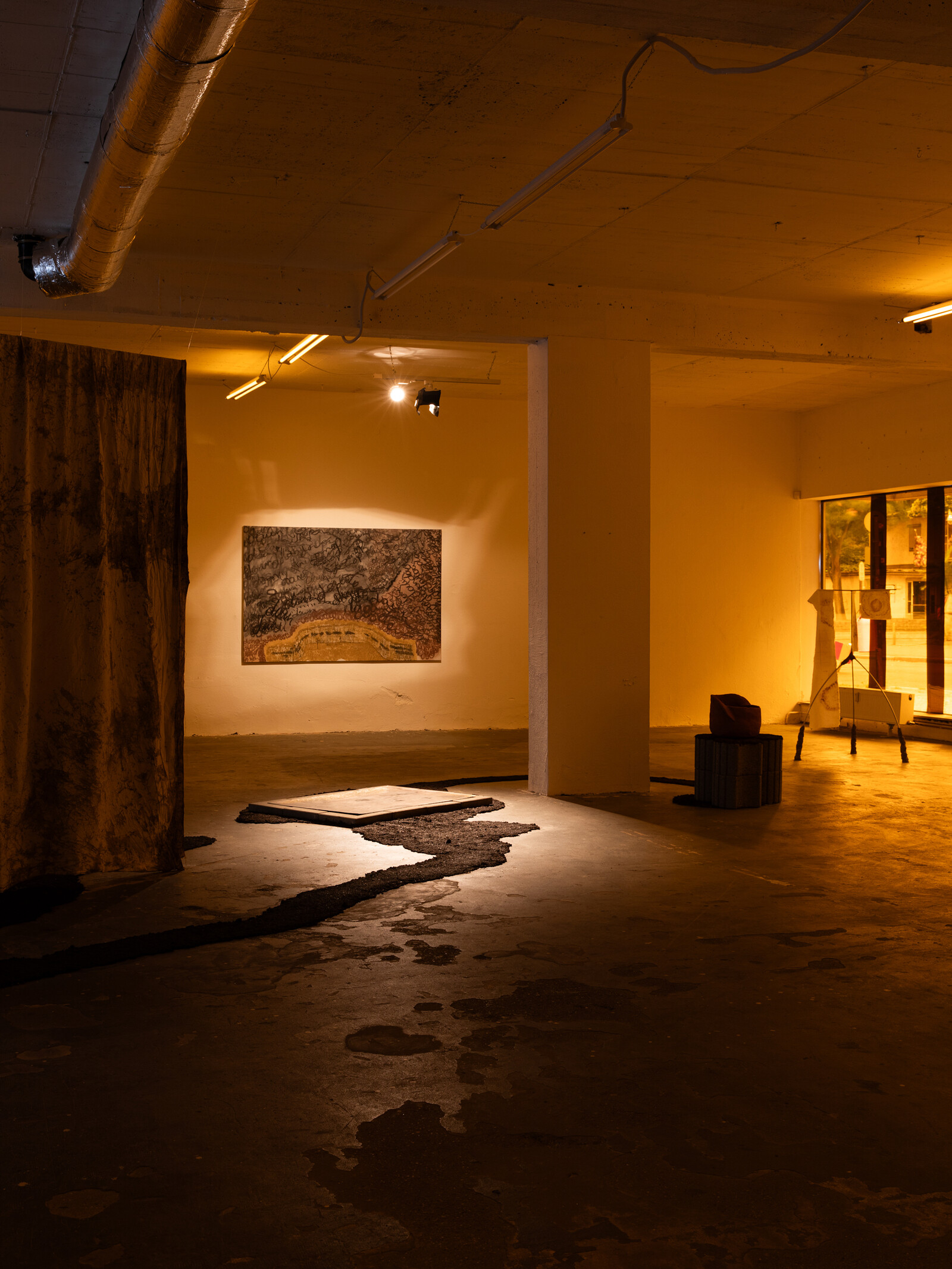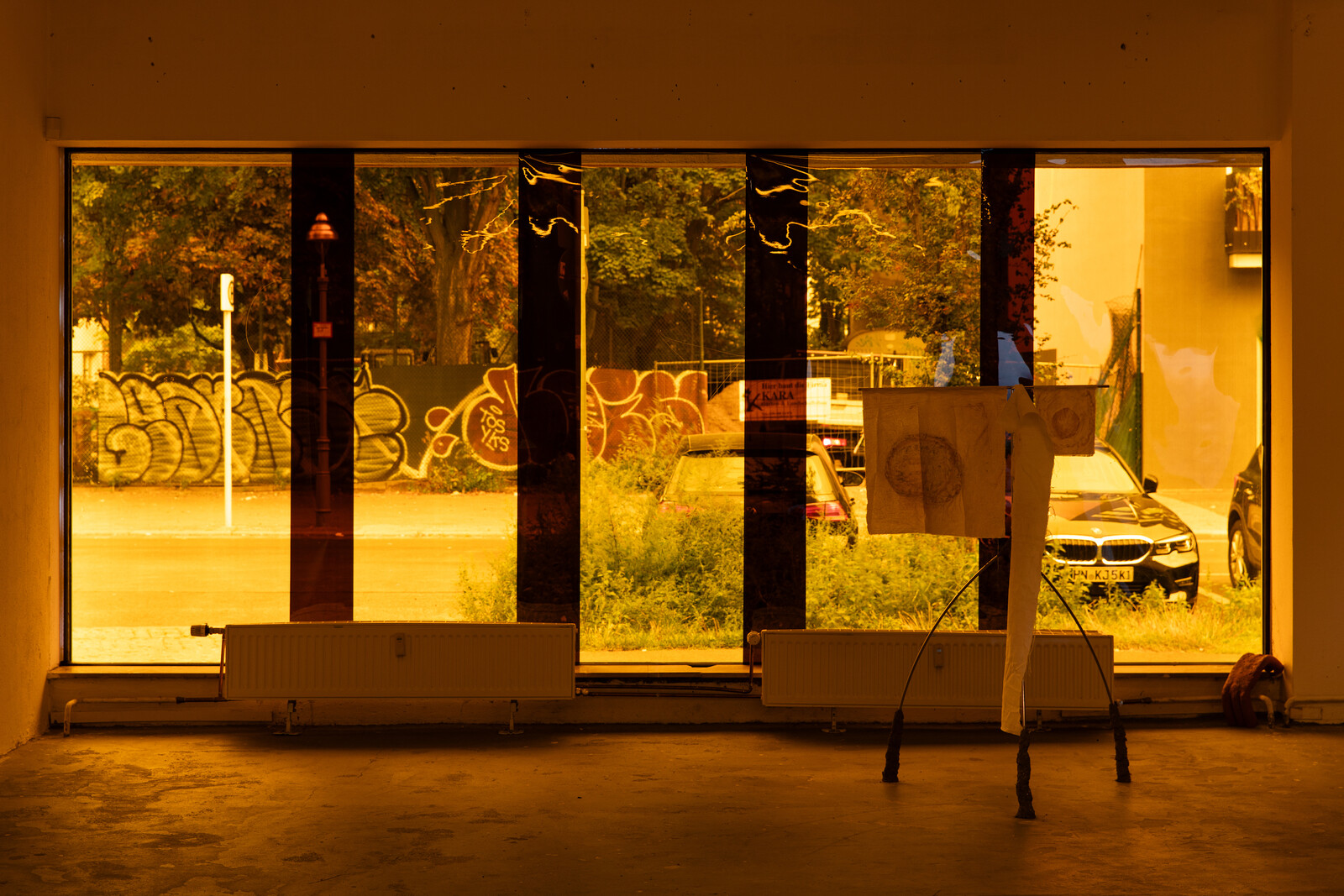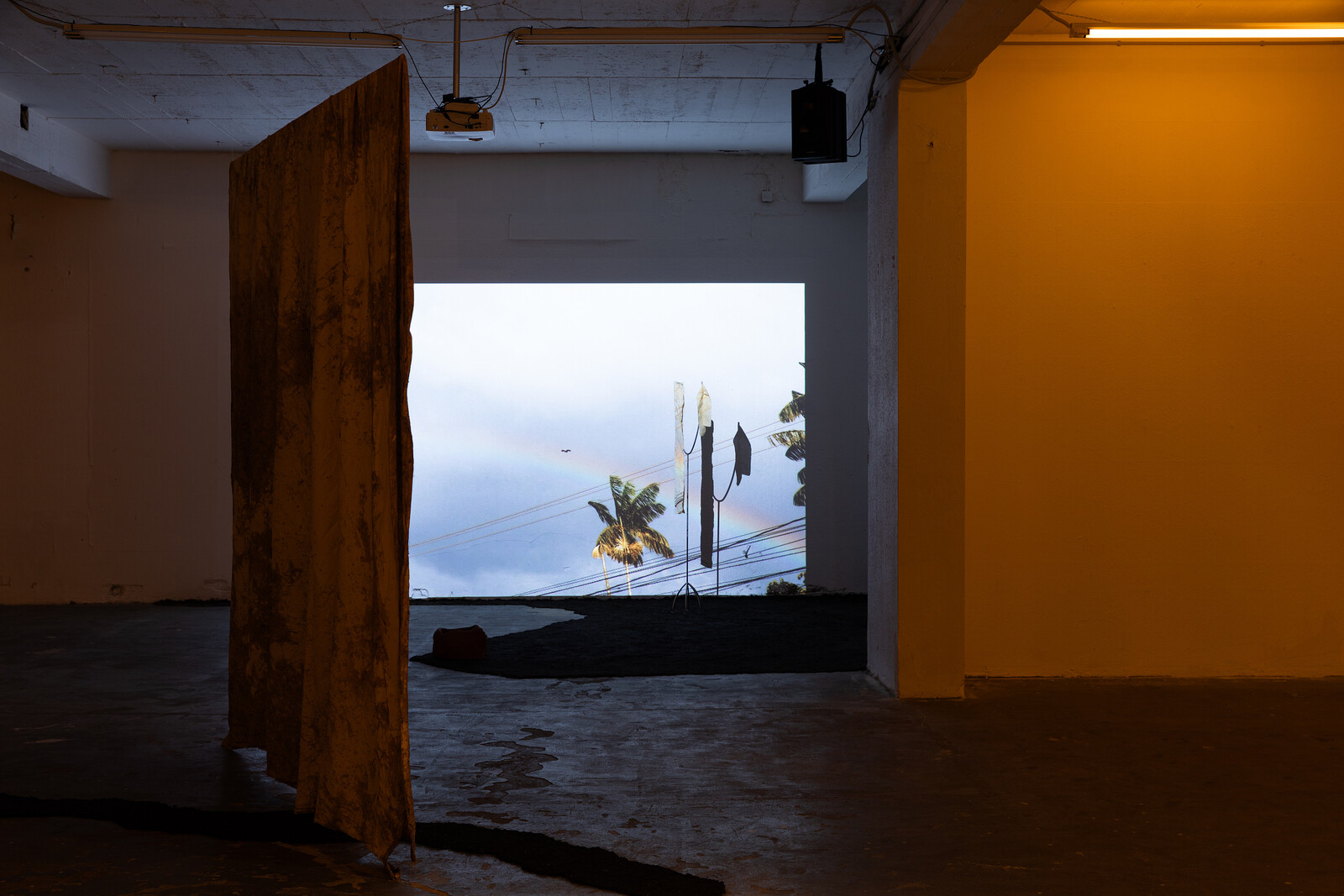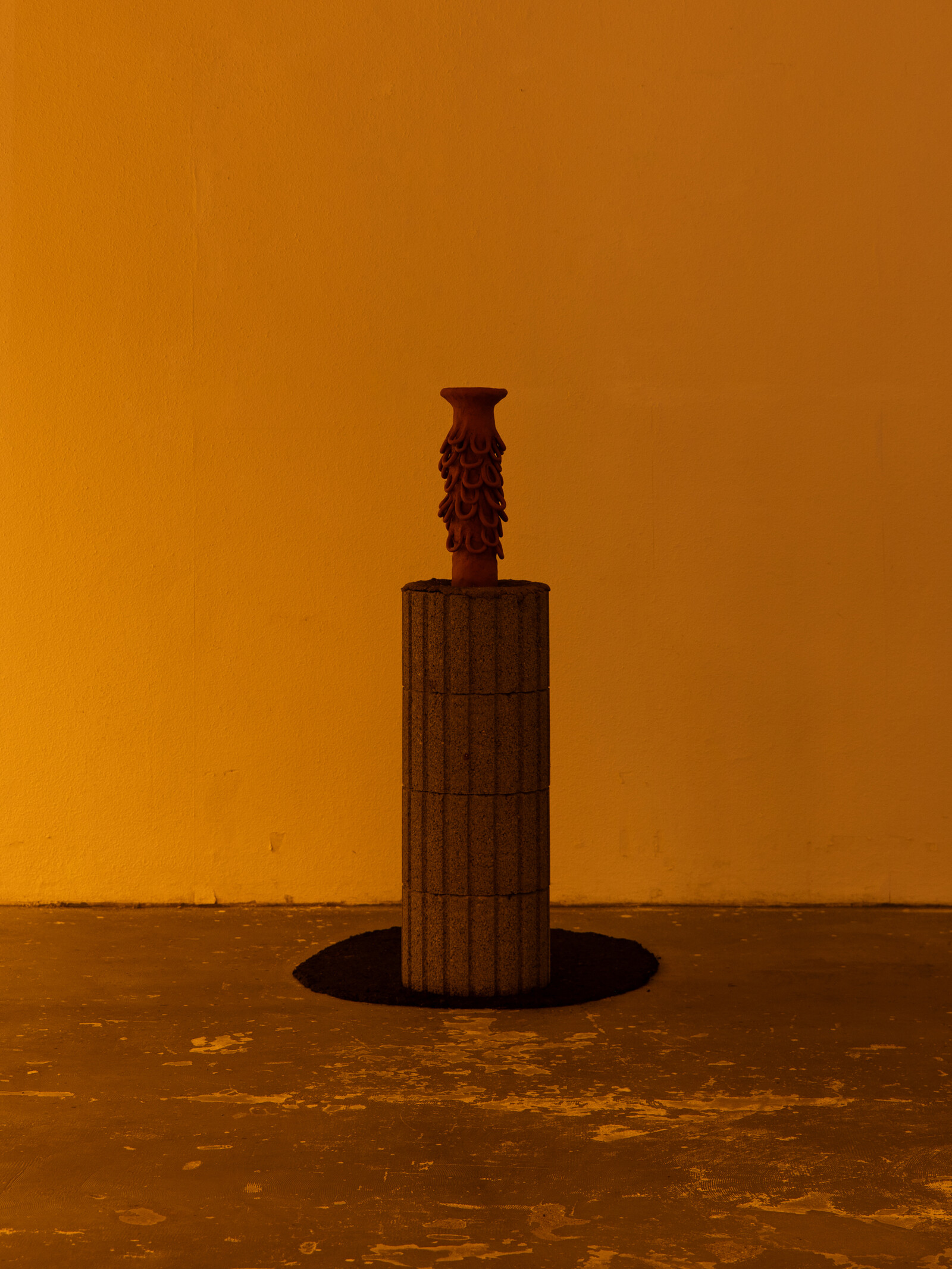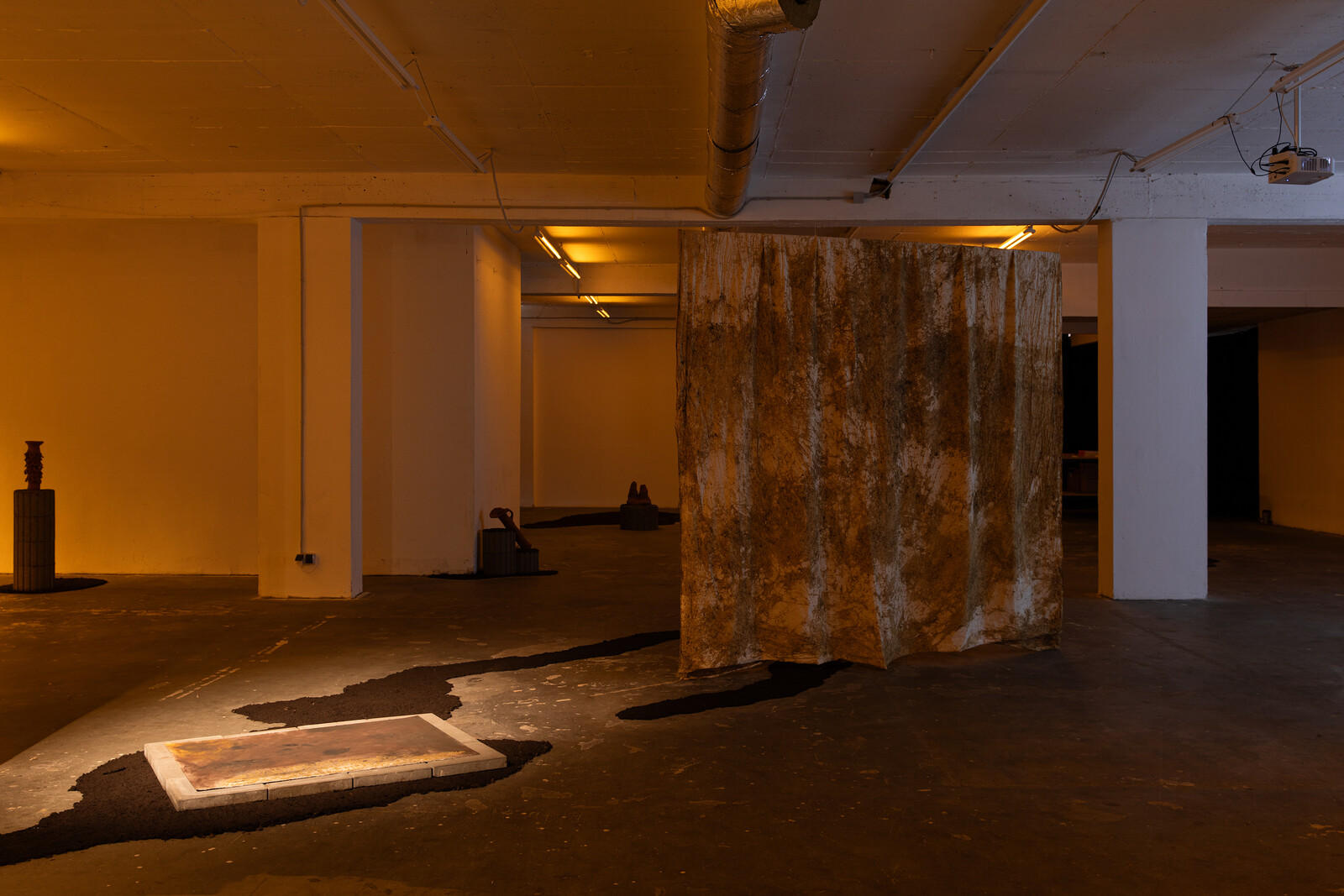In the final chapter of her 2016 book In the Wake, Christina Sharpe meditates on the weather, which for her signifies the “pervasive climate” of antiblackness in the modern world.1 Her argument is shaped by the insight that “new modes of writing, new modes of making-sensible” are needed to account for the quotidian violence of the colonial present.2 Jota Mombaça’s “A CERTAIN DEATH/THE SWAMP” builds on these contentions through a series of artworks that address the weather and, when viewed together, make up an atmosphere.
While preparing for the show, Mombaça researched the disastrous flash floods that struck western Germany and neighboring countries in 2021, as well as Berlin’s origins as swampland, drained in the 1700s. What would it mean, the artist asked herself, for cities to turn back into swamps? until the last morning (2023), made in collaboration with Anti Ribeiro, Darwin Marinho, and Luana Peixe, is her oblique answer to this. The looping, fourteen-minute video studies the mangroves and marshlands of Pará in her native Brazil. Its long, pensive shots of clouds recall John Constable’s cloud studies of the 1820s. For the Romantic painter, clouds exteriorized emotions and symbolized modernity’s scientific advances. To today’s eye, they also refract deepening environmental anxieties—two months ago, Japanese researchers announced that microplastics are present in clouds, with implications for all of the biosphere.3 Mombaça’s video features a poem that conveys awe and apprehension. In this artwork, water is a planetary commons and an agent of collapse.
Much of the footage in until the last morning is saturated in an amber hue. A goldish aura repeats in the gallery thanks to warm yellow lighting and window film. Evocatively, the feel of the show shifts as sun intensity and cloud cover changes throughout the day; this is less an installation than an environment. Mombaça’s practice channels the self-reflexive legacy of institutional critique, but extends this lens well beyond the gallery—ecological critique might be a more fitting term for her capacious art.
A constellation of rain catchers (all 2023), as the artist refers to them, are dotted throughout the space. These unvarnished pinch pots were submerged in the Waldsee, a lake to Berlin’s west, for forty days. Sediment clings to their clay surfaces and accumulates in their basins. The poetics of sinking—Mombaça has previously sunk sculptures in a canal by Amsterdam’s Rijksakademie, the San Francisco Bay, and a Venetian lagoon—is weighted with connotations of capsizing and drowning. In a formal sense, it also disrupts the scale at which we typically look at art objects. After all, these ceramic vessels don’t only hold water, but are held by it. Like in until the last morning, water weaves disparate elements into a dynamic ecosystem.
Certain statements are unmoored from signification. A trio of precarious assemblages consisting of metal tripods draped in drawings might be likened to instruments or limp flags. An untitled hanging sheet, dyed with dirt, divides the space. Mombaça’s background is in performance, and in their unfixity, these gestures read as generously performative. Two paintings reveal the broader stakes of the artist’s inquiry. Made from charcoal and pigment, these resemble chalky topographies. The abstracted features of each are flooded by handwritten text that, barely legible, resembles asemic writing: this is more pronounced in the larger canvas (anticipation (at dawn), 2023), hung on the wall, than the smaller one (mud embankment, 2022), installed on concrete slabs on the floor, suggesting a sequential relationship. The works echo European cartographic and landscape traditions, albeit twisted to present novel, mutant possibilities, and resonate with a growing body of scholarship that examines the significance of geography in the construction and deconstruction of race and colonialism.
Islands and trails of soil arc across the floor. Perpetually “in limbo,” as a recent article in National Geographic expressively notes, swamps are transition zones between land and water.4 Mombaça explores the historical implications of this and advances a transitional poetics for a weather-beaten world. Here, the swamp is a threshold and a fugitive terrain; a place of freedom as well as catastrophe.
Christina Sharpe, In the Wake: On Blackness and Being (Durham, NC: Duke University Press, 2016), 106.
Ibid, 113.
Yize Wang, Hiroshi Okochi et al., “Airborne hydrophilic microplastics in cloud water at high altitudes and their role in cloud formation,” Environmental Chemistry Letters, 21 (2023): 3055–3062.
Sarah Gibbens, “What are wetlands, and why are they so critical for life on Earth?” National Geographic, February 27, 2023, https://www.nationalgeographic.co.uk/environment-and-conservation/2023/02/what-are-wetlands-and-why-are-they-so-critical-for-life-on-earth.
